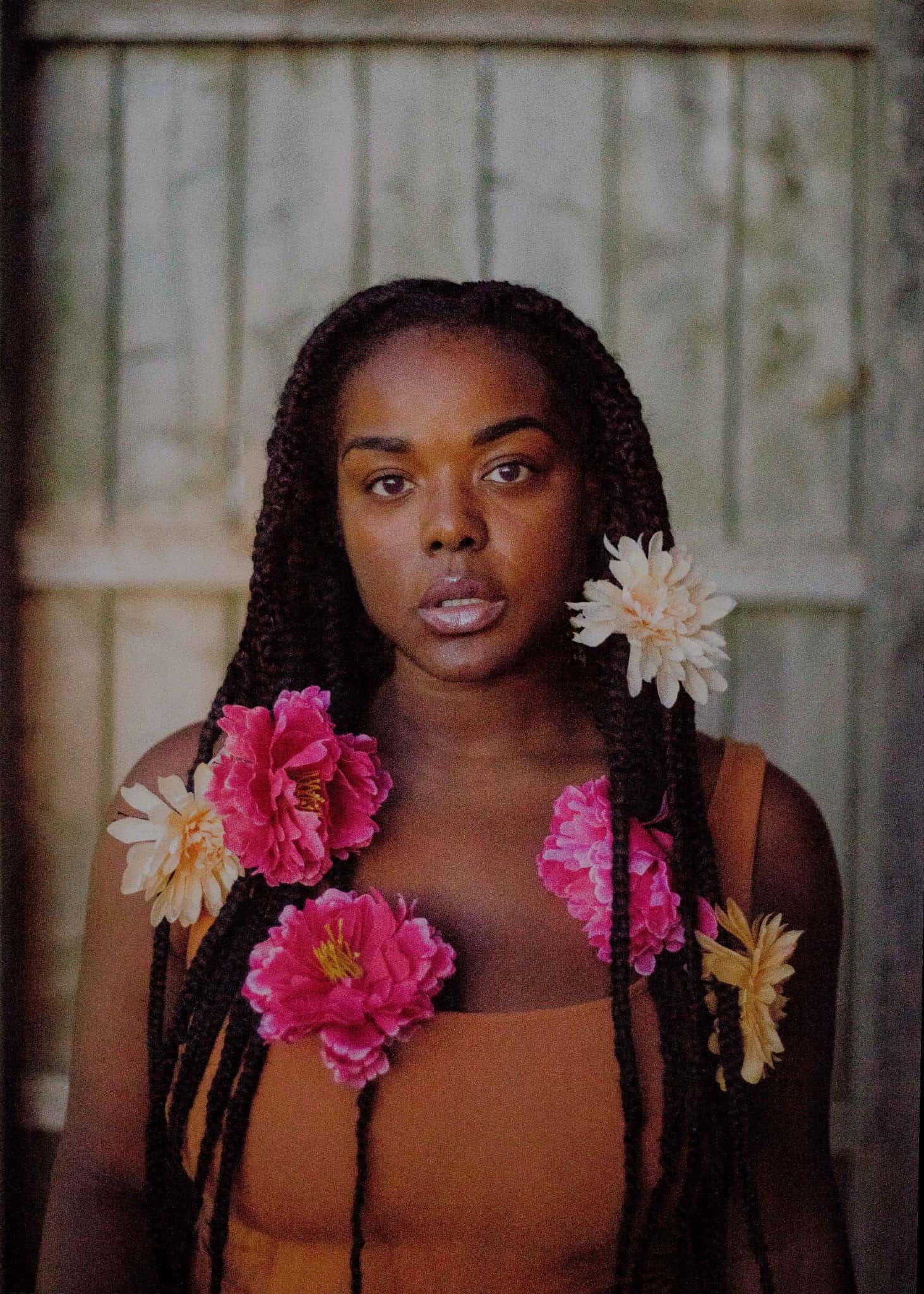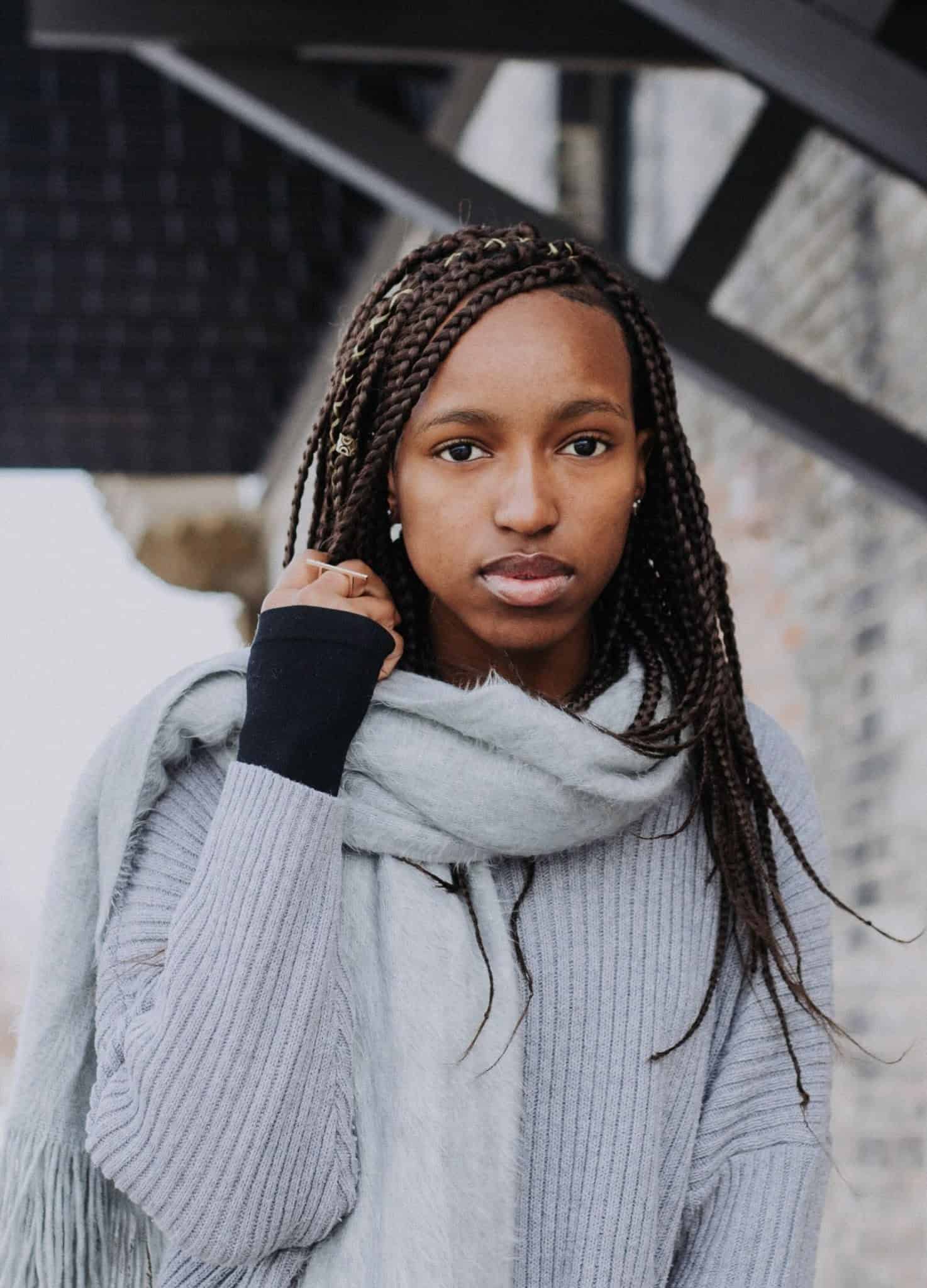Knotless Braids vs. Box Braids
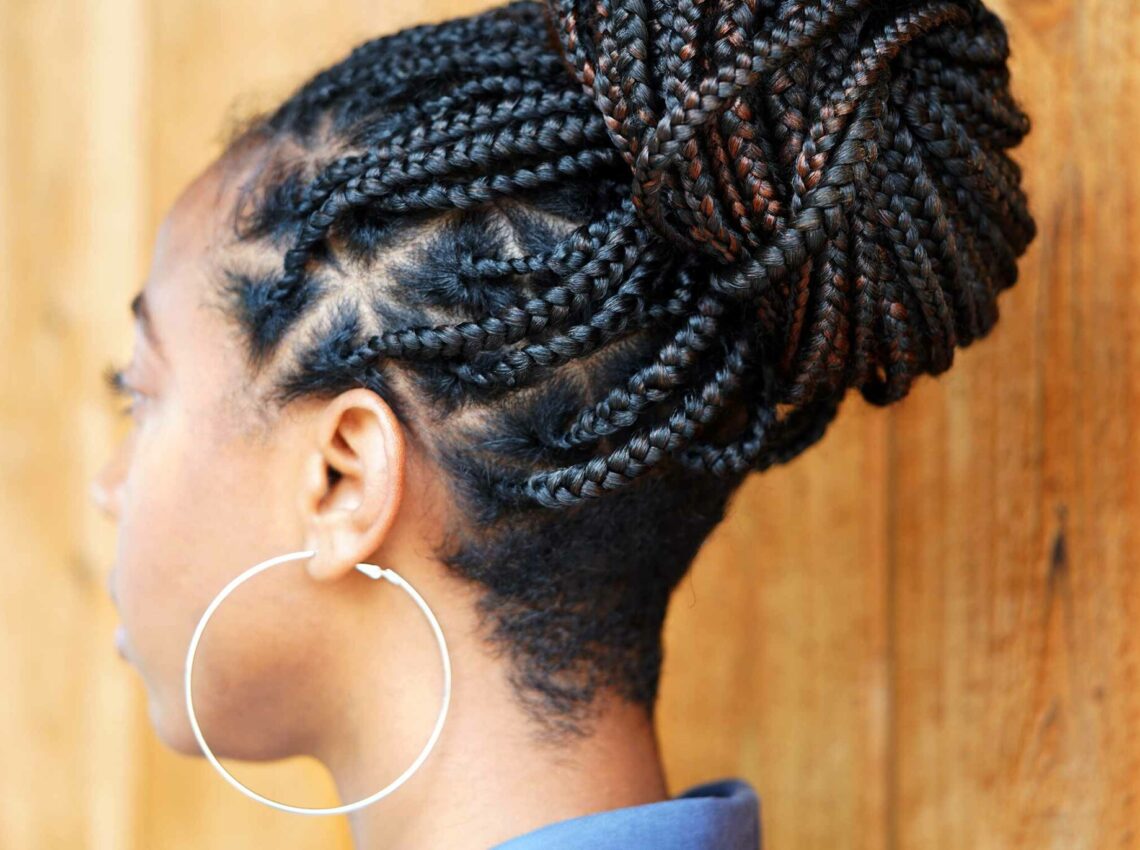
While box braids and knotless braids are similar, knotless braids use a different feed-in technique that requires less tension and is gentler on the scalp. The result is lightweight, pain-free braids with all the style and versatility of the more traditional box braids.
There are five factors to consider when deciding between box braids and knotless braids: technique, cost, installation, duration, and styling. Below, we’ll take a closer look at the differences between the two braided hairstyles to help you choose the style that’s best for you and your hair. Once you know which style you want, make sure to make an appointment with a braider near you!
What’s the difference between knotless braids and box braids?
Knotless braids don’t start with a knot at the base of the hair where synthetic hair is added, like traditional box braids. Instead, they use a special feed-in technique to add the synthetic hair gradually to the braid itself. The result is a braid that lies flatter, is more flexible, and is gentler on the scalp than a box braid.
Box braids
Box braids are one of the most popular braids for Black women, having deep roots in African history from about 3500 B.C. Today, they remain popular for their look and benefits to hair strength, texture, and hydration, allowing hair to grow better than it would otherwise by preventing breakage.
To install box braids, the braider will first prep your hair, and then section it depending on your desired braid size. From there, your braider will take an appropriate amount of pre-stretched braiding hair and gather a section, looping it together in three equal parts.
The technique then requires your braider to hold your natural hair section, pulling it taut, and divide it into two parts. In a quick series of loops, your braider will create a knot that holds the synthetic braiding hair into place at the root of your natural hair and begin braiding.
Knotless braids
Knotless braids are done with a similar process, except with a slightly different technique with the synthetic hair.
While traditional box braids create a knot at the base of the hair and immediately weave in the synthetic braiding hair, knotless braids begin by braiding your natural hair and then gradually feeding in the synthetic hair. This creates a style that is flatter to the scalp and requires far less tension to hold everything in place.
Now that you know the main differences between the two braid styles, we’ll walk through the installation process, how long they last, how they feel on the scalp, and what they cost.
| Box Braids | Knotless Braids |
|---|---|
| Last longer | Don’t last as long |
| Less flexible, hair lifts off scalp | More flexible, hair rests flat |
| Harder on the scalp | Easier on sensitive scalps |
| Cheaper | Slightly more expensive |
Installation
Knotless braids take longer to install than traditional box braids, but with both styles, the smaller the braid, the longer it will take to install. While micro braids can take up to 12 hours, and you might be asked to return over a few days, others range from nine hours to less than three, depending on the braid size and the expertise of your braider.
Knotless braids take longer because the technique is more intricate and it is a newer style with fewer braiders who are familiar with it. This means that they may still be learning the technique.
Duration
By nature of their installation technique, knotless braids can last as long if not longer than box braids. Knotless braids’ feed-in technique allows new growth to naturally lengthen and allows you to get extended wear from this style. However, new growth can also add weight to your braids. Knotless braids should still eventually get taken out after about four to six weeks to give your hair and scalp a break.
In general, you can expect smaller braids to last longer than larger ones for both styles, with micro box braids lasting up to 12 weeks.The duration of your braids will also depend on your stylist, their technique, and how well you care for the braids with methods like deep conditioning and proper washing.
Styling
These styles are popular because of their low-maintenance versatility that keeps you looking chic. However, with box braids, the knot lifts the hair off your scalp due to the technique used. If you like your braids to lie flatter against your scalp, you may want to go with knotless braids.
Knotless braids lack that knot, and also have more flexibility, meaning you don’t have to worry about letting your hair loosen up for nearly as long after an appointment. Both styles offer a variety of styling options, whether you prefer updos or wearing them down.
Scalp sensitivity
The sensitivity of your scalp is an important factor when considering which style to get. Box braids are much tighter and can cause pain, especially for those with sensitive scalps. While braids themselves help strengthen hair, the process of installing box braids can lead to hair loss or breakage in extreme cases.
If you’ve experienced pain in previous hair appointments, consider knotless braids instead of typical box braids. No matter what you choose, be sure to communicate with your hairstylist about any pain you’re experiencing.
Cost
Box braids generally cost anywhere from $75 to $450, while knotless braids will cost between $99 and $250, plus the cost of any synthetic hair you’ll be using. The cost to have box braids or knotless braids installed by a braider varies depending on several factors, including the size of the braid, the intricacy of your desired style, your location, and the braider’s expertise. Typically, the smaller the braids, the more expensive it will be to have them installed.
Knotless braids are slightly more expensive than typical box braids for a few reasons. Primarily, they’re a popular style that fewer braiders are skilled at. That means braiders who book these appointments are more in demand. They also take longer to install, meaning you pay for more of your braider’s time.
Choosing your style: 10 knotless and box braid styles
Because of the feed-in technique used, knotless braids rest flatter on the scalp than typical box braids. However, both braids can be styled in similar ways, whether you want to leave them loose or up in any manner of different methods that let you show your unique flair.
If you’re not sure where to start, that’s no problem. Here are 10 different knotless and box braid styles that are sure to impress.
Boho knotless braids
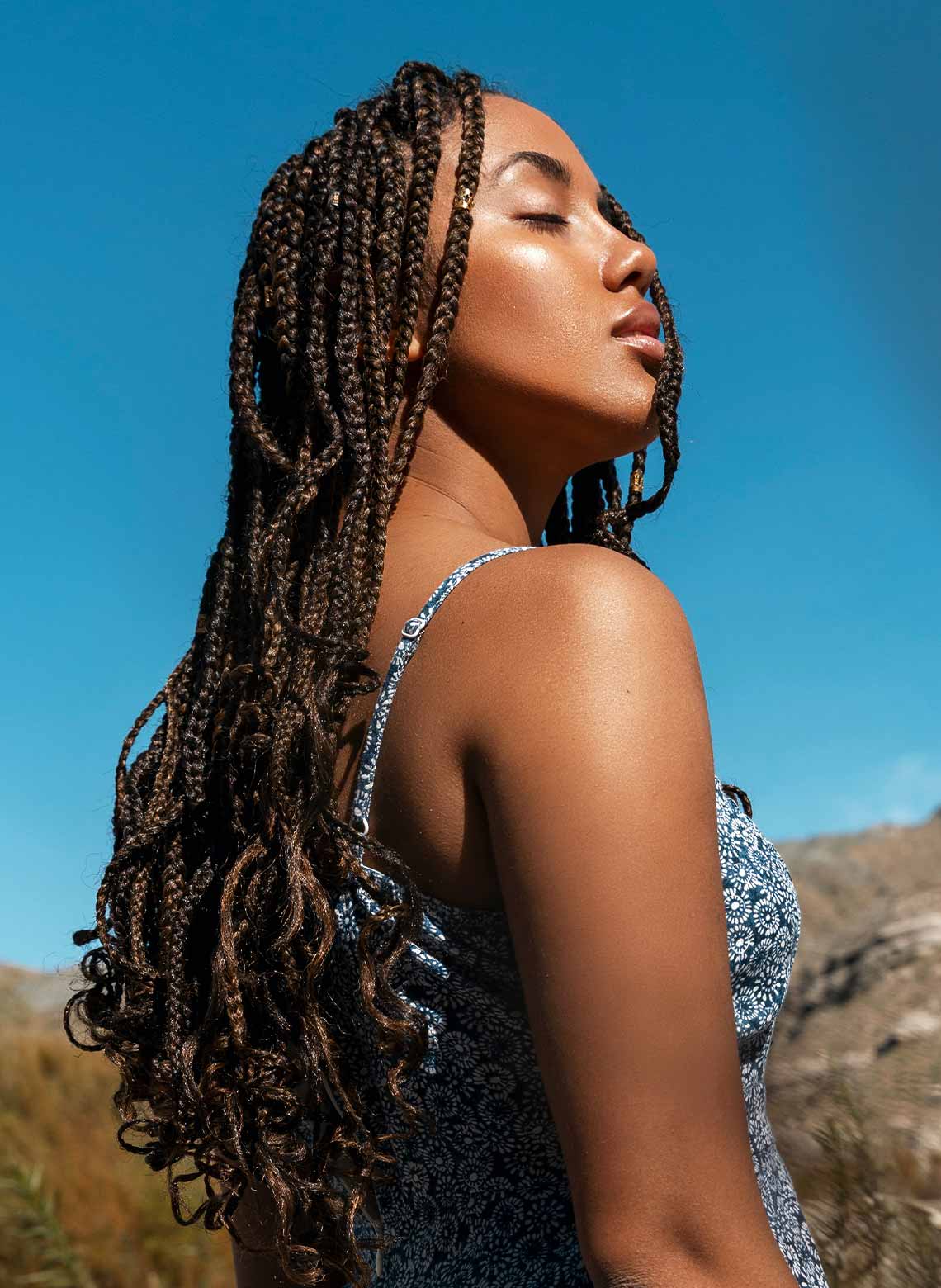
Instead of braiding your hair all the way to the ends, boho knotless braids are only a few inches long, leaving the rest of the hair loose and wavy. From a loose high bun to a half-up, half-down hairstyle, boho knotless braids let you do it all.
Small knotless braids
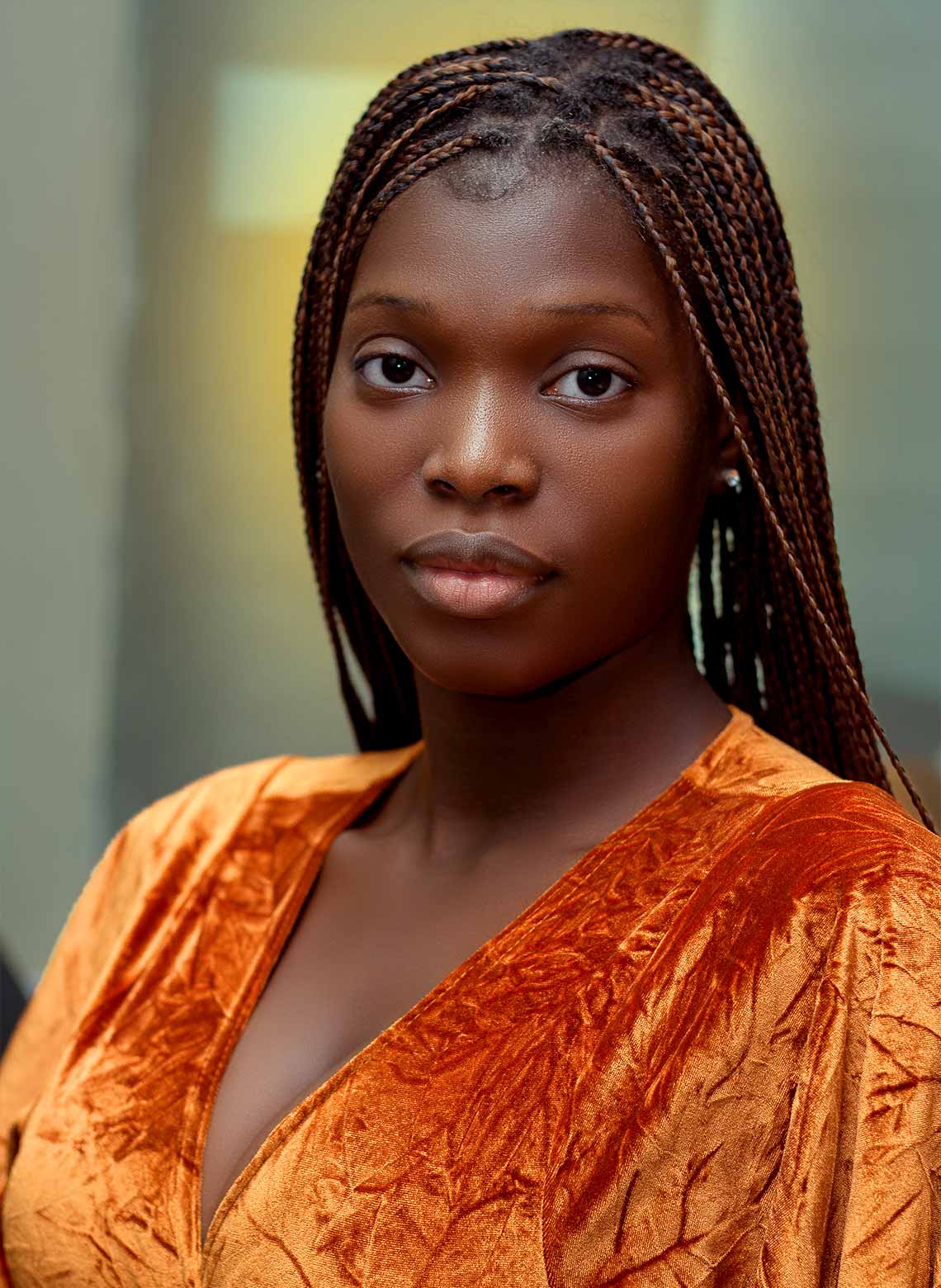
Small knotless braids mean more time spent in the salon chair, but the result is a sleek braid style that can be worn in a number of ways.
Half-up, half-down knotless braids
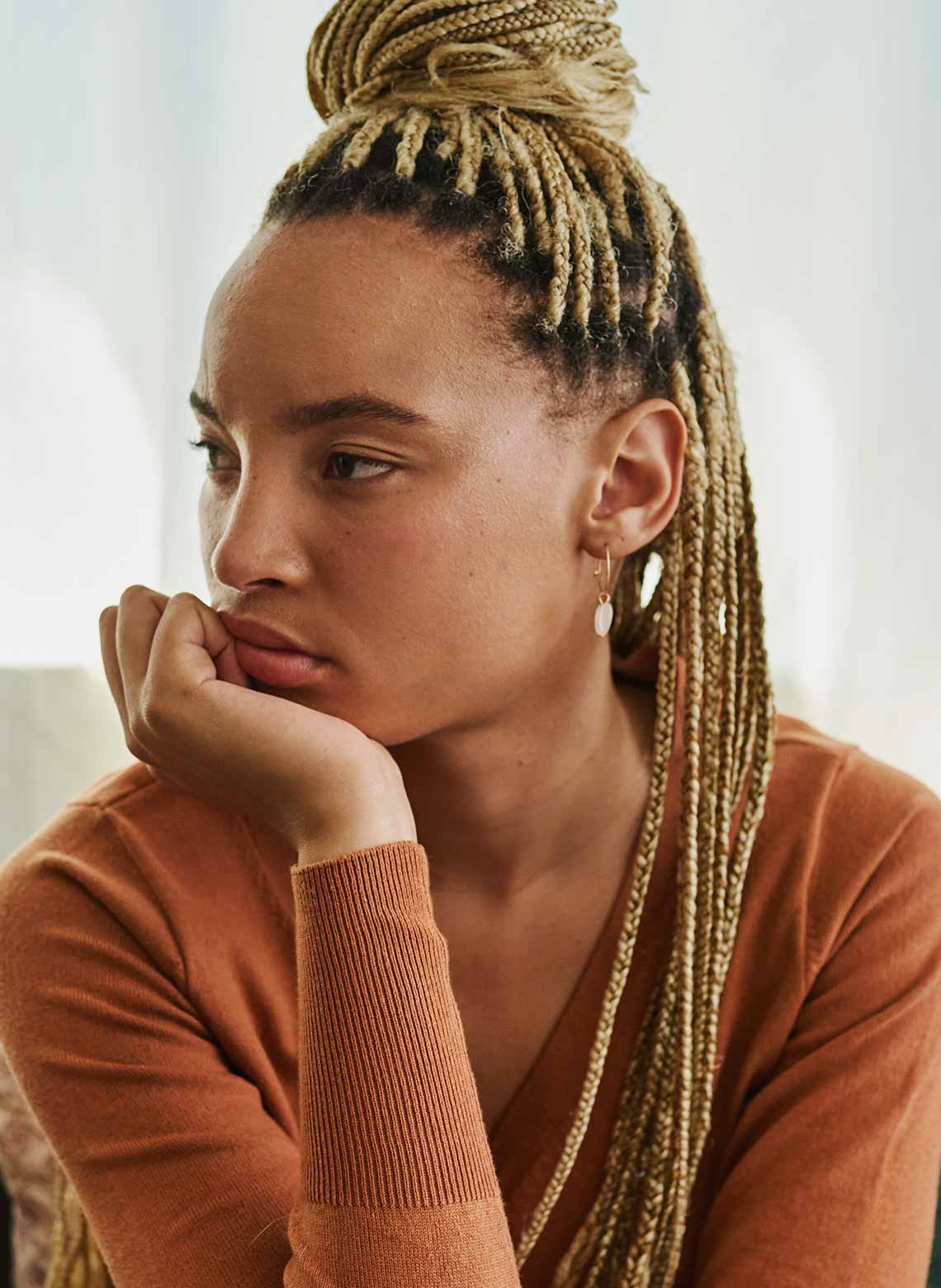
Half-up, half-down knotless braids are an eye-catching style that gives you the best of both worlds. Switch up how you wear the half-up section to keep this style feeling fresh.
Colorful knotless braids
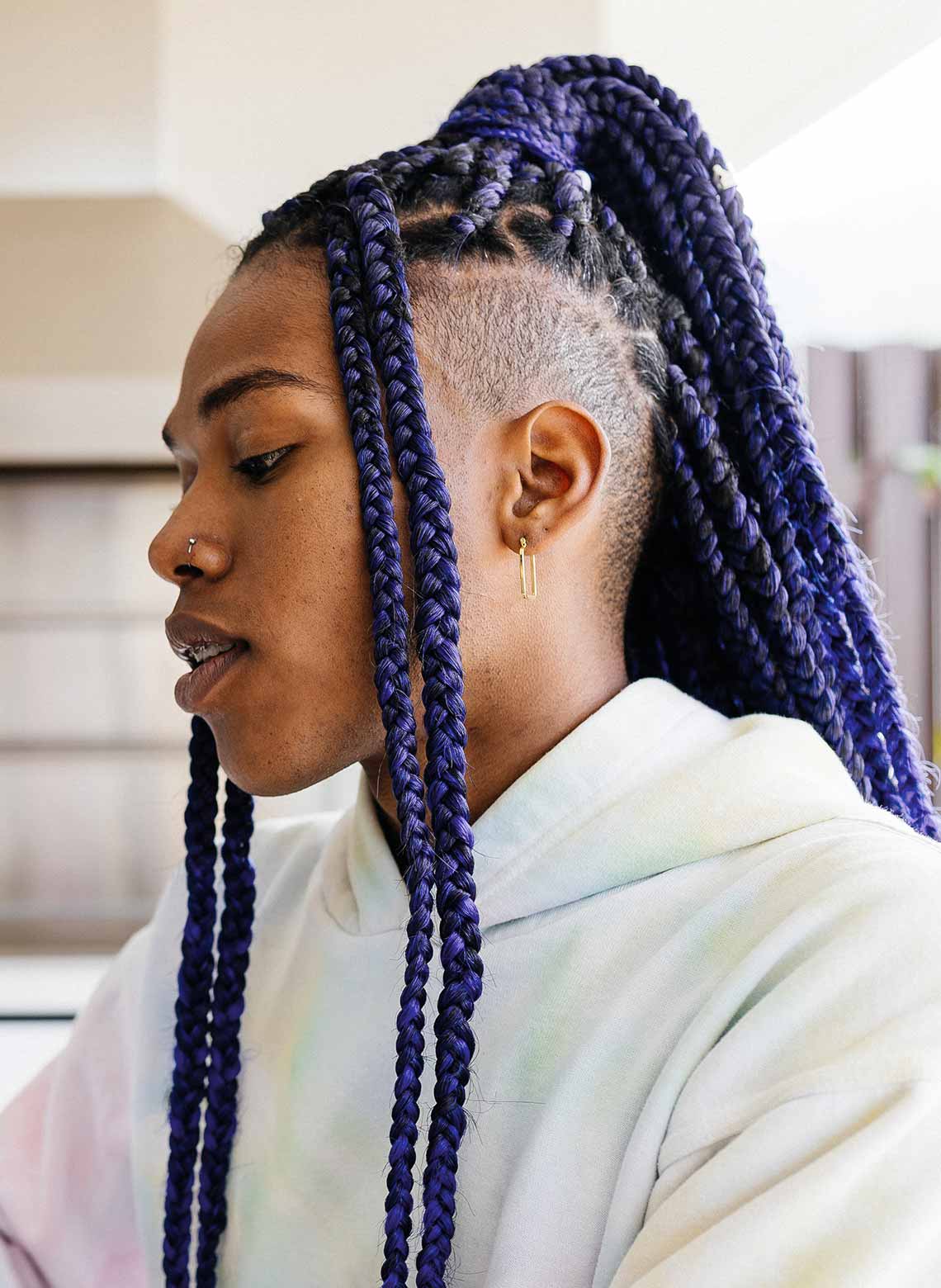
Let your personality shine with colorful knotless braids! Whether you want one bold hue or an ombré effect, colored braids are a playful style to try.
Jumbo box braids
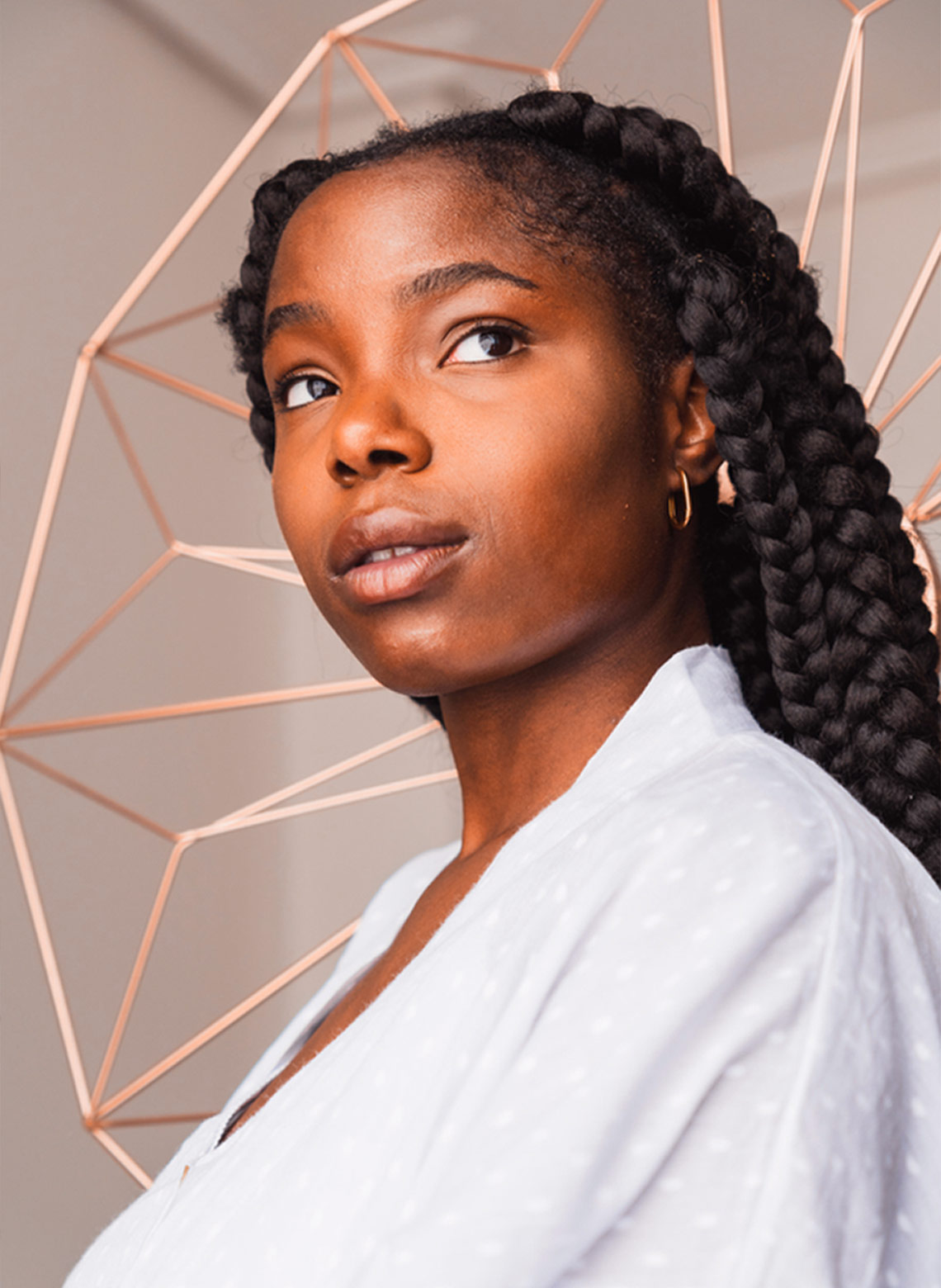
Jumbo box braids are a classic style that requires less time in the braider’s chair and looks lovely worn down, which is perfect for the days you don’t feel like styling your hair!
Ponytail box braids
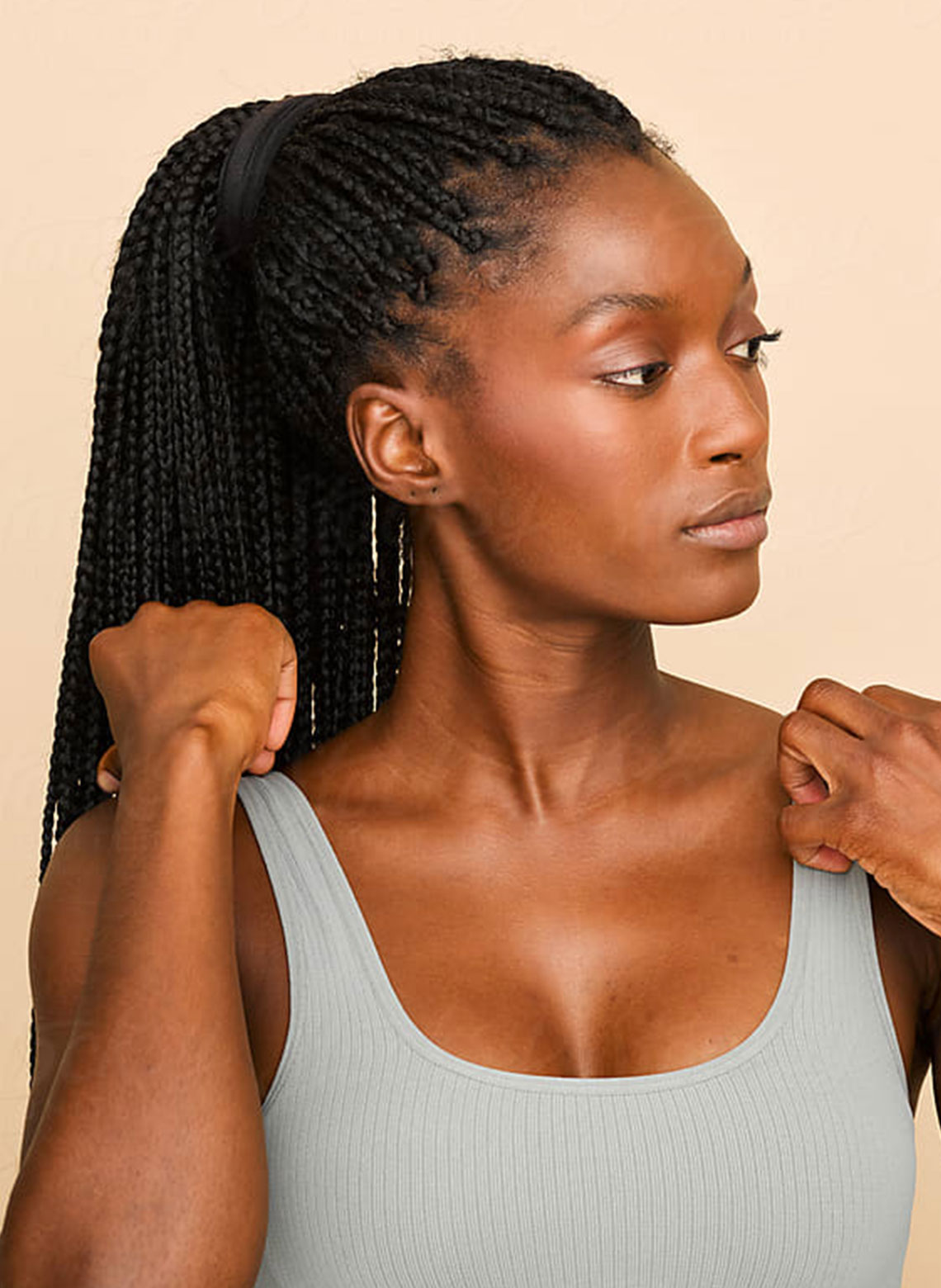
Ponytail box braids are a simple and easy style to create. You don’t even need a hair tie — just bring your hair up, tie it with your braids, and voila!
Medium box braids
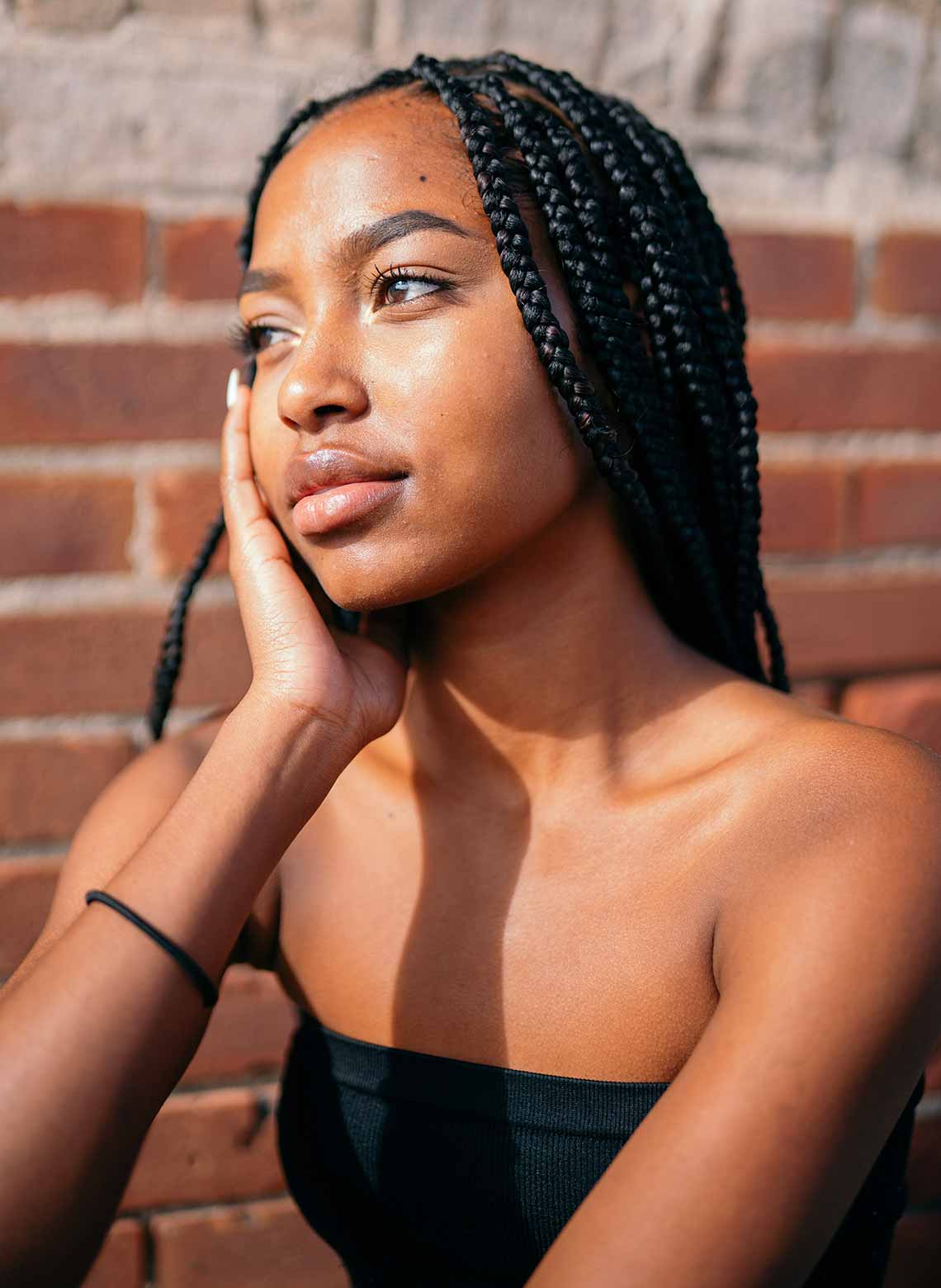
This style is another classic — and for good reason. The medium braid size is a bit easier to style into updos and buns than larger braid sizes, while keeping the smaller aesthetic that many people love.
Small box braids
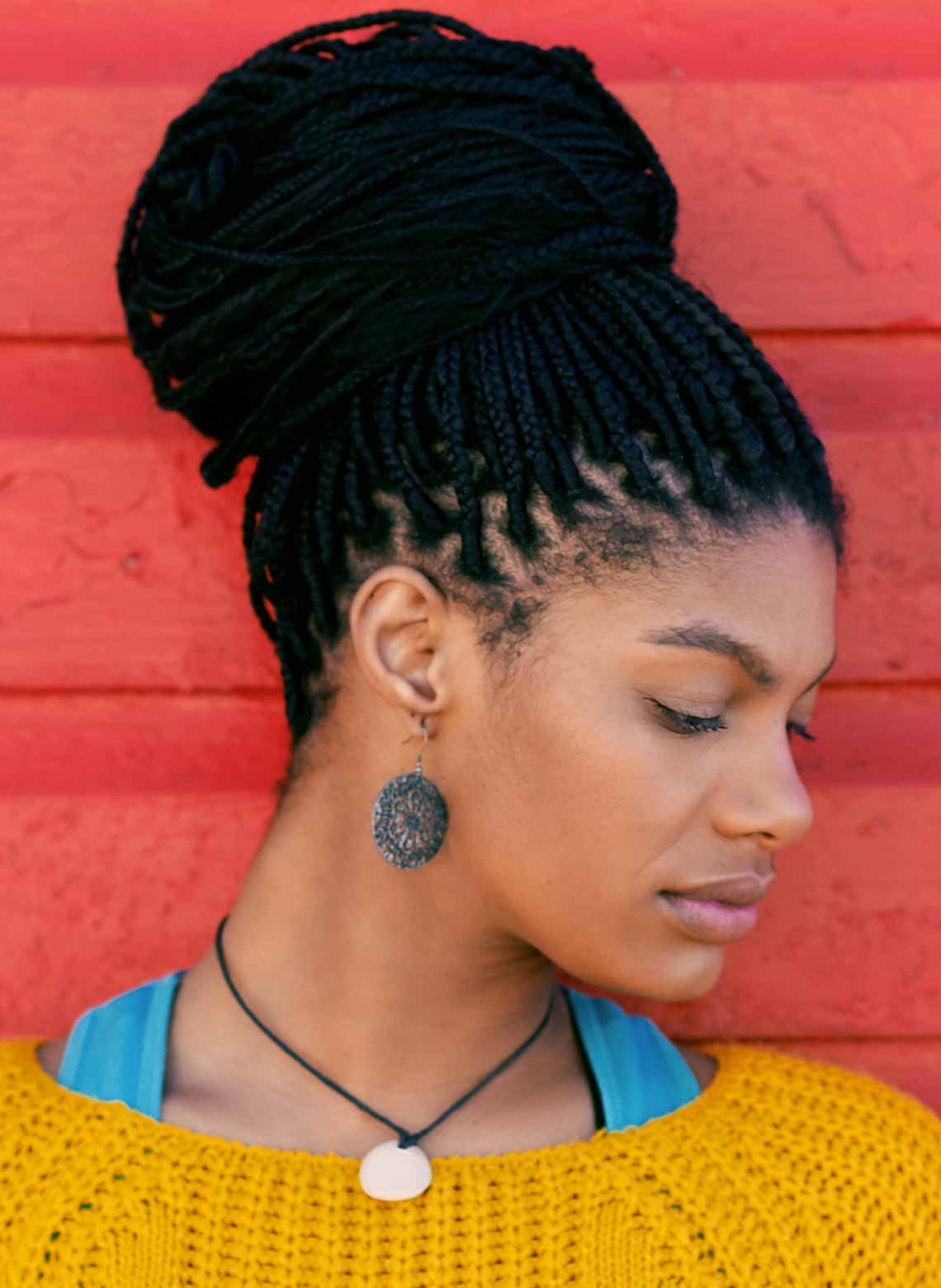
Small box braids might take a lot of time, but the end result is well worth it. They last longer than most braids and look the most similar to your natural hair while having all the protective benefits of a braided hairstyle.
Accessorized box braids
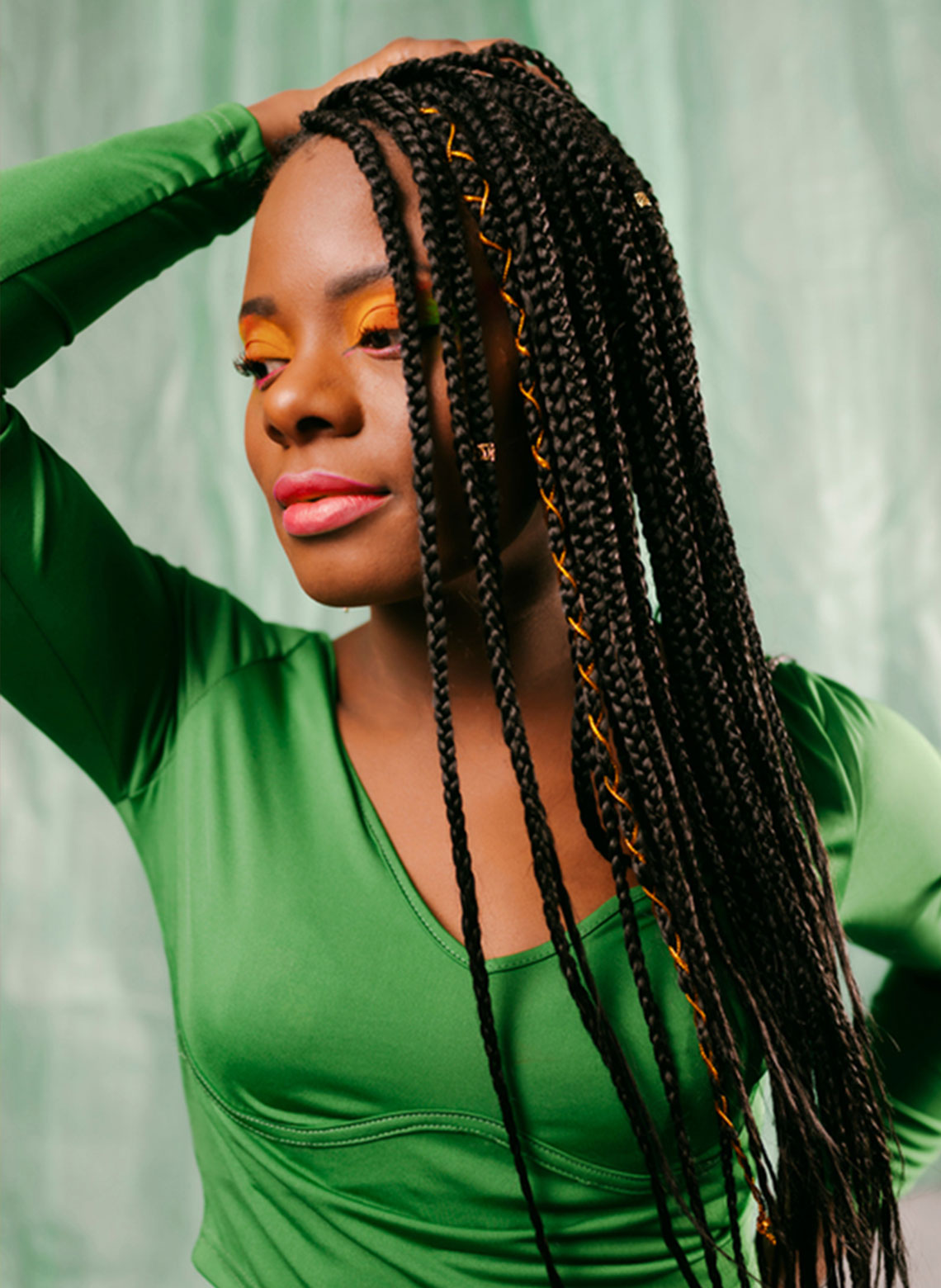
Accessorized box braids are an eye-catching style that work well for special occasions or just because. Adding cuffs or pops of color can be all you need to stand out.
There you have it — all the most important things to know when considering box braids or knotless braids. Still have questions? Reach out to a StyleSeat braider to talk about your specific concerns and needs. If you’re ready to try braids, make sure to book an appointment with a braider near you!

